El Salvador: protests continue, despite being officially banned
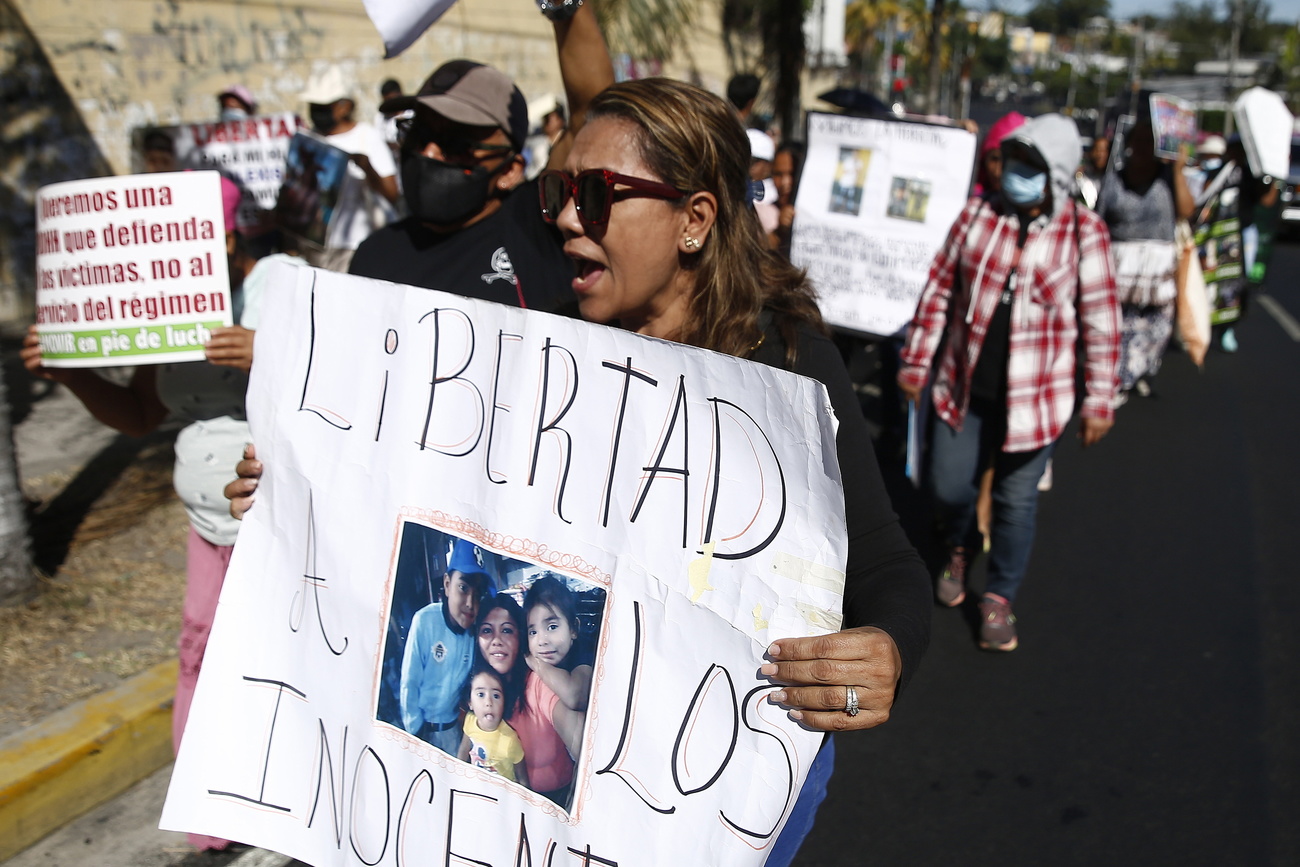
El Salvador goes to the polls on Sunday, even though a state of emergency has been in place for two years. The government wants to continue its fight against gang violence. Monika Hess from the Swiss aid organisation Solidar Suisse explains how the state of emergency continues to endanger women and how restrictions in basic rights are affecting Solidar’s work.
SWI swissinfo.ch: How is the Swiss aid organisation Solidar active in El Salvador?
Monika Hess: Together with local organisations, we are active in the areas of gender-based violence, employability of young people, helping small farmers adapt to climate change, as well as humanitarian work. We have had a presence in El Salvador for almost 30 years. Our coordination office has five to ten staff, who also manage our projects in Guatemala and Honduras.

SWI: 30 years ago, the 1980 to 1991 civil war in El Salvador had only just ended.
M.H.: Yes, our work already began during the war. After the 1986 earthquake, we delivered emergency aid. Later, we supported displaced people and demobilised fighters through local organisations. Our current coordinator has been doing the job for 23 years. Since the very beginning, women’s rights, trade union work and political participation have been issues for us.
In recent years, we have gathered expertise in the area of gender-based violence. A core element of our work is a project with the local organisation CORDES (Foundation for Community Development and Cooperation) in Chalatenango, which works with state institutions to improve and expand services for people affected by violence. This includes an IT platform which helps us document cases of violence.
SWI: In 2016 there were over 5,000 murders in El Salvador. In 2023, around 500, ten times fewer. The rigid approach of President Nayib Bukele’s government against gang violence seems to be having an effect. Is there also less violence against women?
M.H.: Yes and no. Femicide, the murder of women and girls as an extreme form of violence, has decreased, but it remains high. Other forms of violence have purportedly increased, and the support for victims is less guaranteed. Already before the state of emergency came into effect, a historic dismantling of women’s rights and victims of violence began. Consequently, many crimes were not reported. The suspension of the rule of law means that women are afraid and have no guarantee of a fair trial if they press charges.
SWI: But despite this, police continue to arrest more alleged criminals.
M.H.: For two years now, a state of emergency has existed in El Salvador. This means that a fair trial is never guaranteed. Instead, there are arbitrary and wrongful arrests. The police and military can arrest people – mostly young men, of course – without a warrant and for an indefinite period of time. From a human rights perspective, this is alarming.
SWI: In 2023, the American think tank Carnegie Endowment for International Peace asked whether violence against women had increased in El Salvador since the state of emergency, and whether women had become “collateral damage”. Is this an accurate assessment?
M.H.: As already mentioned, female victims of violence are less protected. But the state of emergency has a sordid side that is being ignored. Gang violence and murder rates have fallen, but conditions for millions of women and their families in El Salvador have worsened because their basic rights have diminished. Also, because their relatives are in prison, they are forced to leave their children alone at home while they go out and work under exploitative conditions. According to a 2017 study, three-quarters of women in El Salvador have experienced gender-based violence.
Femicide is just the tip of the iceberg when it comes to gender-based violence. Other forms of domestic and sexual violence are less obvious. One problem in El Salvador is the high number of teenage pregnancies between 10 and 14 years of age, either because of ignorance or abuse. Such a pregnancy can be tragic, especially in a country that has banned abortion. Furthermore, during a state of emergency female activists can experience significant insecurity. There is a risk of indiscriminate arrest, also for women.
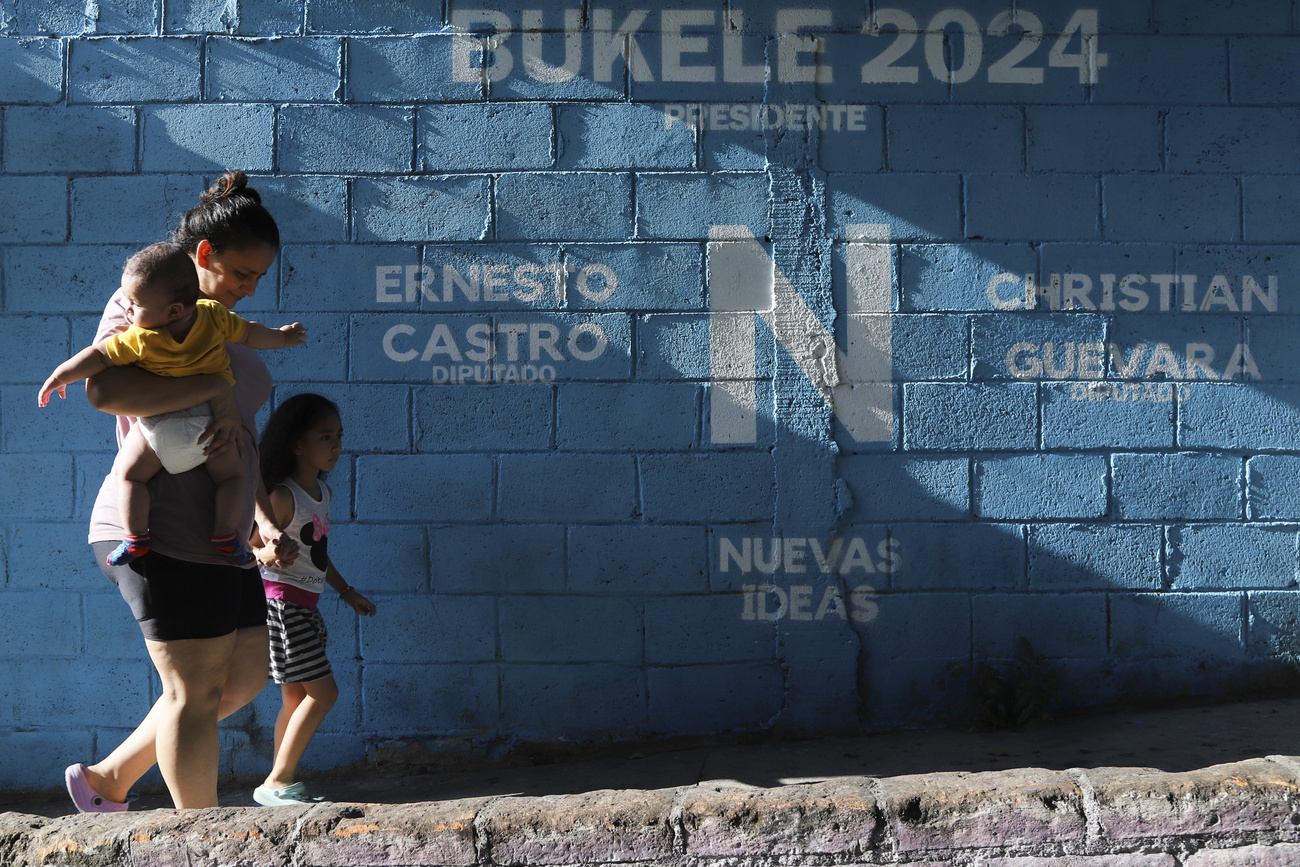
SWI: How do you rate the progress of basic rights in El Salvador? Cryptocurrency supporters around the world who value freedom are pinning their hopes on El Salvador. But in recent years, the country has been downgraded from “free” to “partly free” by the democracy NGO Freedom House. It now scores lower than countries such as Liberia, Mexico and the Philippines.
M.H.: Basic rights and the rule of law are at risk. The separation of powers between politics and the judiciary is no longer recognisable. Unconstitutional measures are taking over. For example, another term of office for the current president is contrary to the constitution, but the candidacy was approved. Checks and balances no longer follow the rule of law. These developments are causing us great concern. Ultimately, they weaken the state’s ability to tackle enormous problems such as food security, climate change, impunity and violence. We see little state investment here.
SWI: On February 4, elections will begin in El Salvador. President Bukele’s re-election is expected. He is very popular because he is taking action against gang violence.
M.H.: Support for the current president is high. Gang violence – murder, blackmail, kidnappings – wreaks great losses and misery on the people of El Salvador. The population in the affected areas greatly appreciates the reduction in gang violence, but the state of emergency does not bring security. The military has taken over the role of the police and the state currently invests very little in schooling, vocational training and rural development. Without these investments, long-term stability is barely possible.
SWI: According to Freedom House, elections in El Salvador are “mostly free and fair”, despite the negative developments. Do you think the opposition has a fair starting position?
M.H.: It is obviously very different to Switzerland or another functioning democracy. There is a lot of propaganda and public broadcasting is very pro-government. The opposition also has little room for manoeuvre because it is operating in a situation where there is no separation between the government and the judiciary. It has also not received the funds for the election campaign to which it is entitled by law. I am not a political analyst, but I don’t believe this can be described as “mostly free and fair”.
SWI: I have recently seen online that women’s organisations in El Salvador, with which Solidar Suisse works, have held demonstrations protesting against violence towards women. Are demonstrations still possible while the state of emergency is ongoing?
M.H.: On paper they are not allowed, but they still take place, for example, on the International Day for the Elimination of Violence against Women.
SWI: Do the restrictions on basic rights also affect the work of Solidar Suisse?
M.H.: We are more cautious when it comes to street campaigns. The young adults who are involved with our employment projects are most at risk of arbitrary arrest. We have organised accompaniment for them when they travel to their training locations. We have also been able to negotiate with local authorities to find ways to keep our projects going. I hope this will continue.
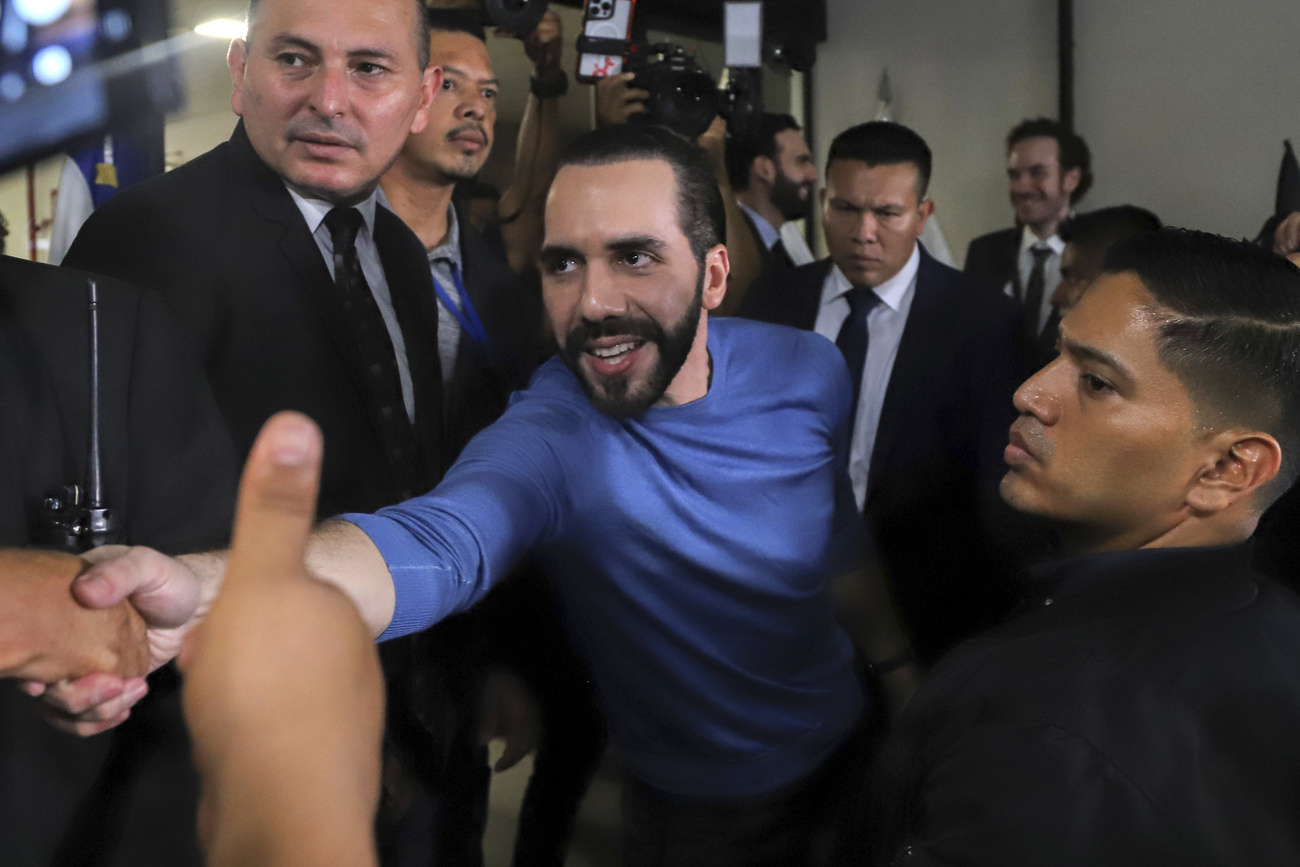
SWI: In response to the accusations of dictatorship, President Nayib Bukele described himself on the platform X as “the coolest dictator in the world”. Does Bukele really govern like a dictator?
M.H.: In El Salvador we are definitely witnessing a decline in the rule of law and human rights, as well as a reversal of democracy. Considering the history of Latin America and El Salvador, this comment is disturbing. It trivialises what dictators have done to their citizens.
As a matter of principle, Solidar Suisse always tries to get the relevant state institutions on board for our projects. Thanks to their dedicated commitment, our local co-workers and partner organisations are continuing to make use of any remaining room for dialogue. Regrettably, this dialogue is increasingly being shut down.
Edited by Mark Livingston. Adapted from German by Sue Brönnimann

In compliance with the JTI standards
More: SWI swissinfo.ch certified by the Journalism Trust Initiative










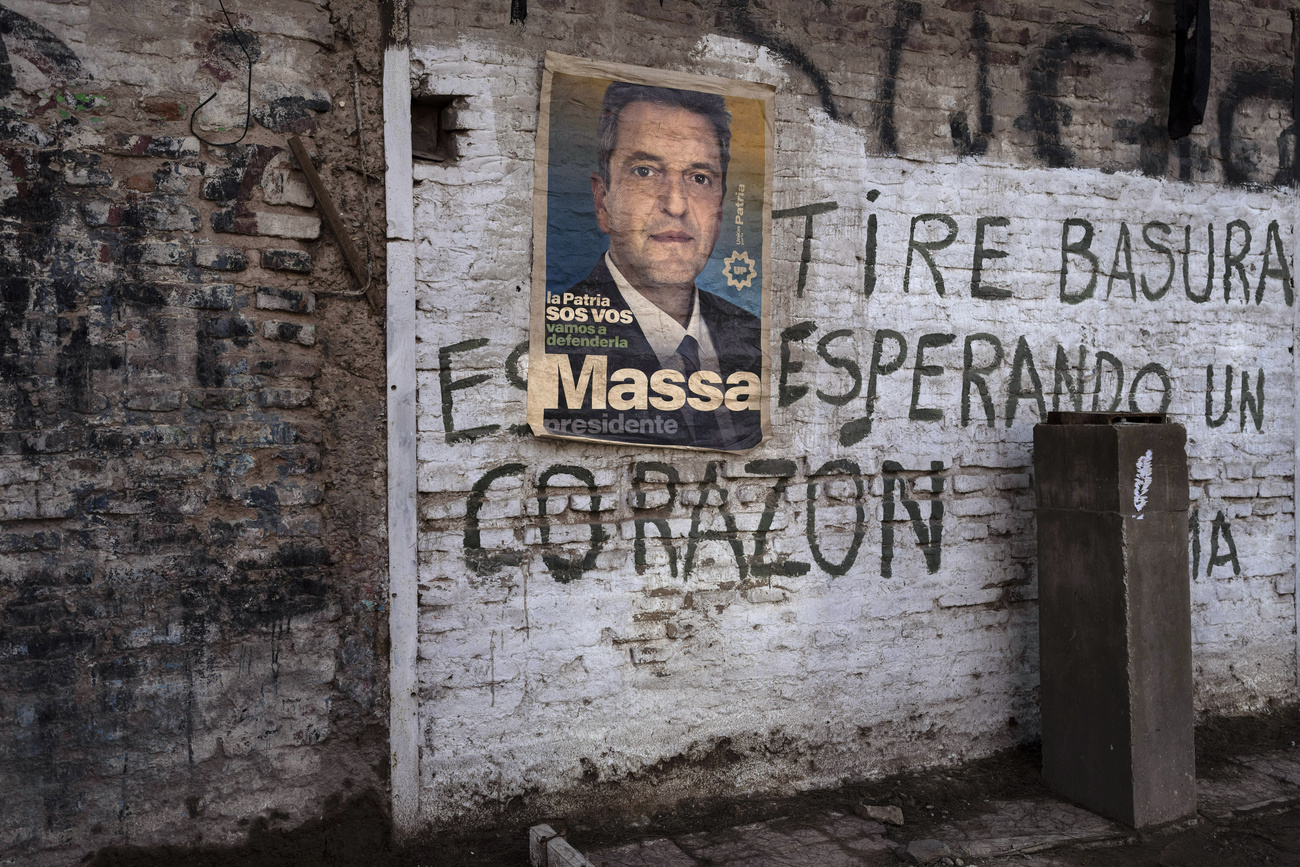
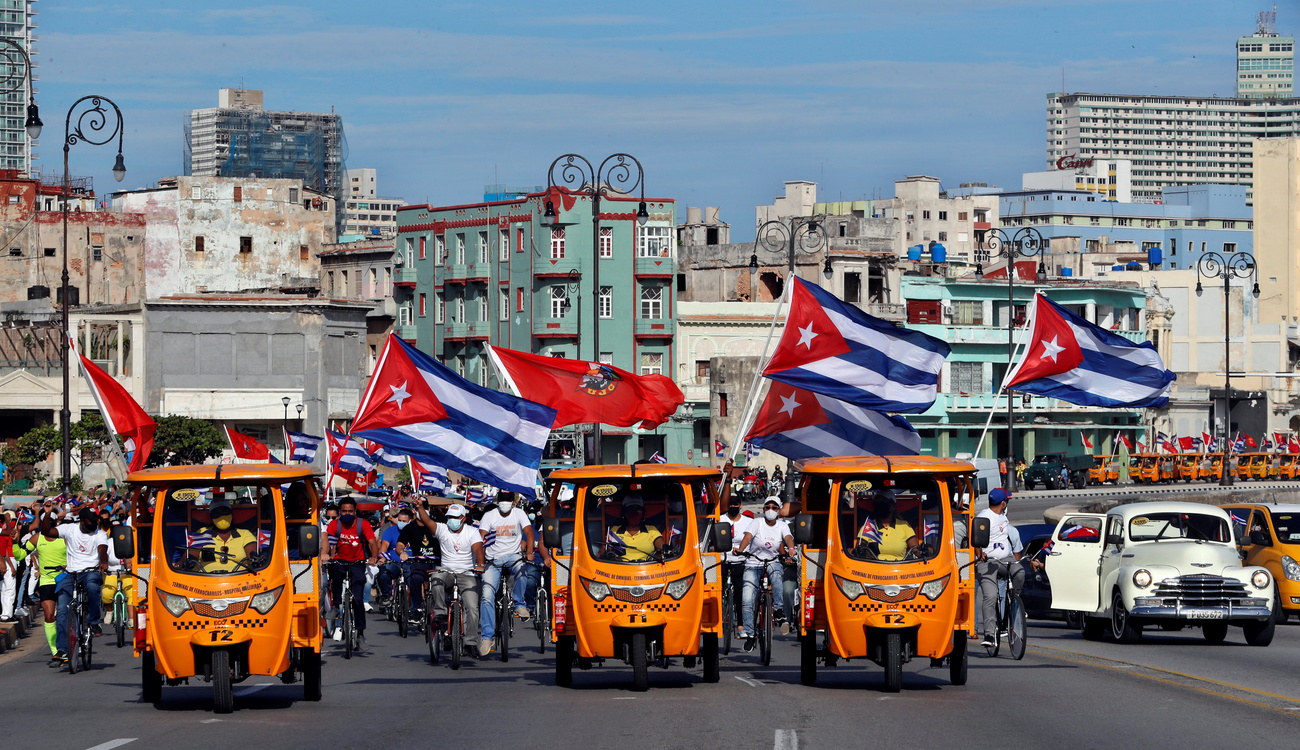
You can find an overview of ongoing debates with our journalists here . Please join us!
If you want to start a conversation about a topic raised in this article or want to report factual errors, email us at english@swissinfo.ch.